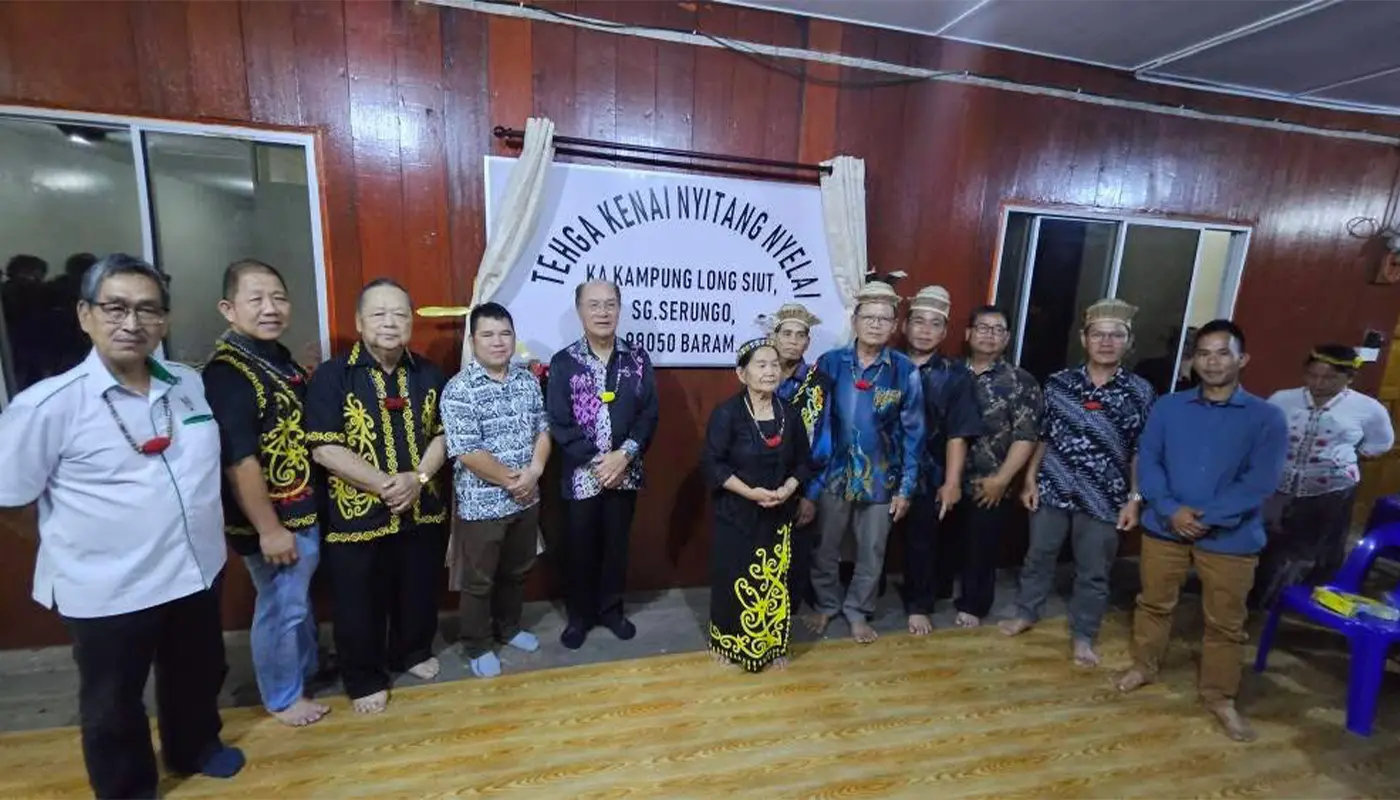BARAM – The official recognition of Kampung Long Siut, Sungai Selungo, Baram has marked a historic milestone for the Kenyah Jamok community, affirming both administrative inclusion and the spirit of unity within the village.
The recognition was officiated by Datuk Gerawat Gala, Deputy Minister in the Sarawak Premier’s Department (Labour, Immigration and Project Monitoring) and Mulu Assemblyman, during a ceremony that highlighted the government’s commitment to rural communities.
He emphasised that the recognition is not merely administrative, but also symbolic of the resilience and cooperation shown by the people of Long Siut.
“With this official recognition, Kampung Long Siut is now included in the state’s formal administrative structure, which will allow the village to benefit from government facilities and various development opportunities,” Gerawat said.
The event also saw the appointment of Lawai Ulok as the first officially recognised village head of Kampung Long Siut, a role that will strengthen leadership and ensure closer coordination with state agencies.
Community leaders noted that this recognition opens the door for improved access to infrastructure, education, and social development programmes.
The ceremony was attended by local officials including Telang Usan Selection Officer Ezra Uda, alongside community representatives and residents.
The gathering reflected the strong support from both government and grassroots stakeholders in advancing the welfare of the Kenyah Jamok people.
For decades, the community had sought formal acknowledgement of their village, which they viewed as essential for securing state assistance and development projects.
The recognition now ensures that Kampung Long Siut can benefit from initiatives under the Rural Transformation Programme (RTP) and other state-led schemes aimed at uplifting rural communities.
The Sarawak Government has consistently emphasised the importance of recognising rural settlements to ensure equitable development across the state.
Officials highlighted that such recognition is a gateway to receiving facilities such as improved roads, utilities, and community centres, while also strengthening cultural identity and local governance.
Residents expressed optimism that the recognition will bring tangible improvements to their daily lives, from better infrastructure to enhanced opportunities for youth and future generations.
The Kenyah Jamok community, in particular, sees this as a turning point in their long-standing efforts to secure a stronger presence within Sarawak’s administrative framework.
By formally acknowledging Kampung Long Siut, the state government has reinforced its commitment to inclusivity, rural empowerment, and cultural preservation.
The recognition stands as both a practical step in governance and a symbolic affirmation of the community’s enduring spirit.





